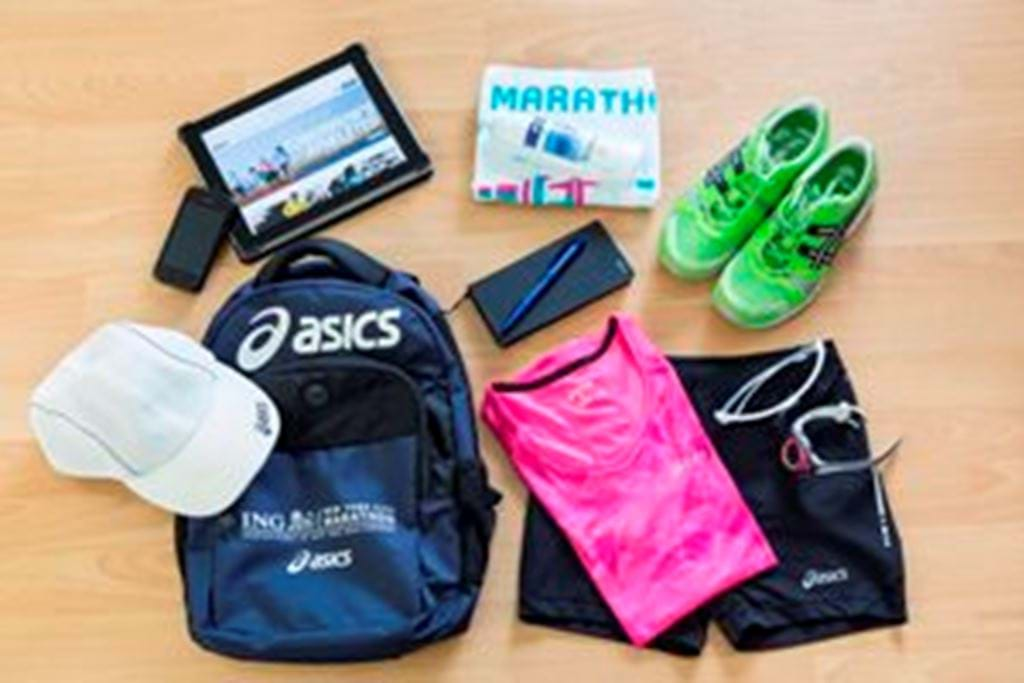Mara Yamauchi blog: How to build running into your working day
10 August 2014

A small number of elite athletes have the luxury of training and competing full-time. But for most of us, running has to be fitted in with work, or family and other commitments. It certainly isn’t easy – our modern 21st century lifestyles are often fast-paced at the best of times, and squeezing running into a packed schedule can be difficult.
Photo by marimo images
But wait a minute! Actually it may not be as tricky as it first appears, and there are certainly benefits to be had from combining work and running. Over my whole career, I have combined running with full-time work, part-time work, job-sharing, and working for myself, along with being a full-time athlete, so I’ve experienced and learned from a variety of lifestyles.
First of all, and perhaps most importantly, running can help your mental performance at work, making it easier to concentrate and focus. Physical exercise is known to have a positive impact on mental health, and can make you feel more alert. Running before work is therefore a great way to start your day in a positive frame of mind.
Running to and from work has become very popular as a way of saving money and time, and is a great way to fit training into a busy schedule. Of course it takes some organisation with transporting your work clothes to and from your workplace, but this can be overcome by writing a list of everything you need and planning ahead (see picture, top left, for an example of what Mara would take in her bag for a lunchtime run). If your workplace is too far from home, how about travelling part of the way by train/bus/car and then running the rest? And if your workplace doesn’t have shower and changing facilities, why not ask your employer to provide them? Workplace cultures often change through employees pushing for new ways of doing things, and the potential benefits to the employer in better productivity of a healthy workforce can be huge.
 There are small practical things which will help to make combining running and work a success. Sitting down for long periods can be detrimental for runners, because it may shorten your hip flexors, and de-activate your glut muscles. Simple ways to prevent this include getting up and walking around at regular intervals, ensuring you stretch your hip flexors, using lunge stretches for example, and keeping your gluts well-conditioned with exercises such as the clam, single leg bridges, or dynamic step-ups.
There are small practical things which will help to make combining running and work a success. Sitting down for long periods can be detrimental for runners, because it may shorten your hip flexors, and de-activate your glut muscles. Simple ways to prevent this include getting up and walking around at regular intervals, ensuring you stretch your hip flexors, using lunge stretches for example, and keeping your gluts well-conditioned with exercises such as the clam, single leg bridges, or dynamic step-ups.
Nutrition and hydration are very important during the working day, to ensure you recover from morning runs or are well-prepared for evening runs. Drinking regularly throughout the day, and making sure you eat a variety of healthy, nutritious foods while at work, will certainly help you to maintain a regular running routine alongside work.
Finally, tell your boss and your colleagues that you are a regular runner and what that means for your work, e.g. you need to leave on time on certain days of the week, or would like to take an extended lunch break now and again. Colleagues won’t necessarily begrudge you time for running – in fact they might even be inspired by you and take up running themselves. And if that happens, there are plenty of opportunities out there for company or workplace teams to enter races, which have the added bonus of generating team spirit as well as getting you fit.
Run England is encouraging everyone to build running into an active lifestyle and celebrate all the great benefits this summer. Find out why: www.runengland.org/whywerun
Mara Yamauchi is a retired British marathon runner with a personal best of 2:23:12 set in the 2009 London Marathon, a time which ranks her as the 2nd fastest British female marathon runner ever. Mara is also a qualified Run England group leader and Athletics Coach.
Photos by marimo images
More news from RunTogether




